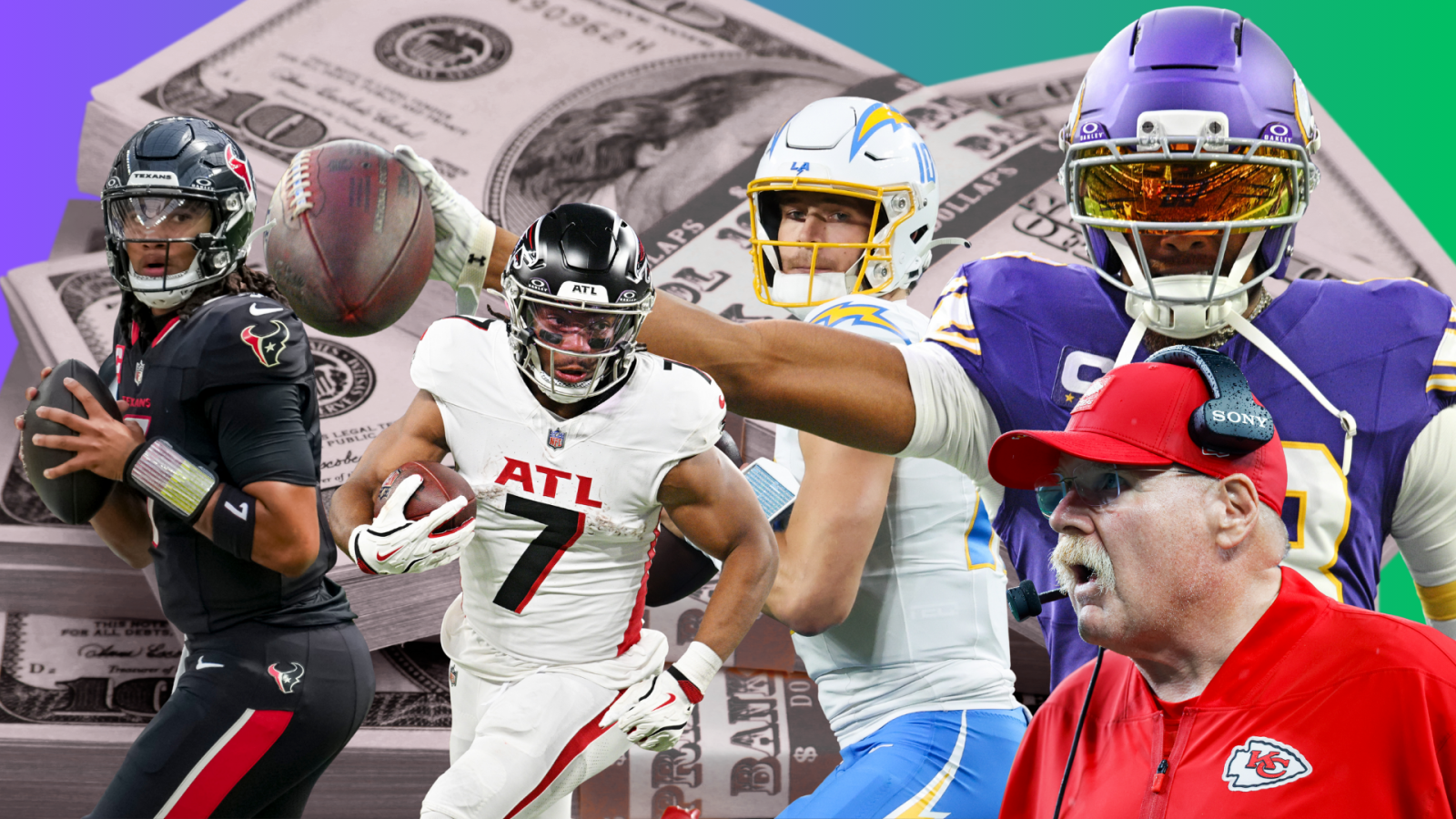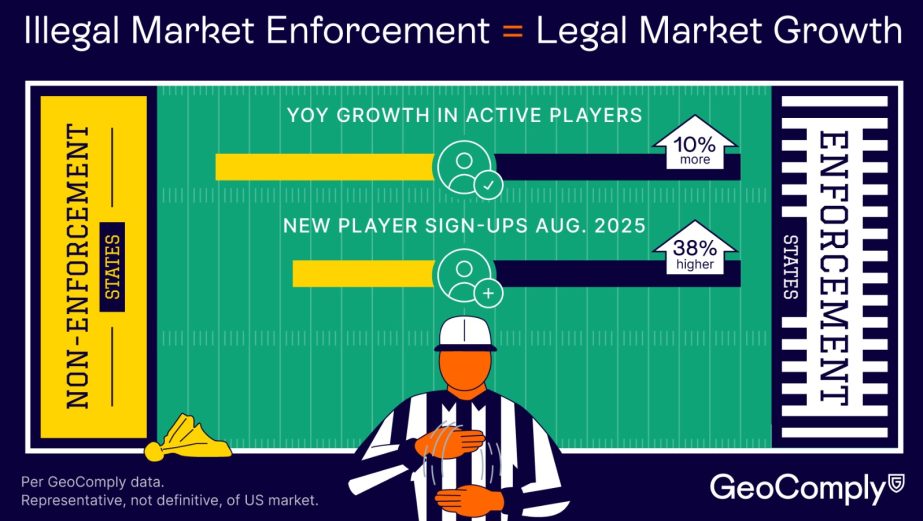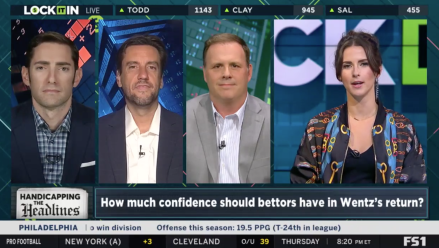Eleven states have not yet launched any form of legal sports betting.
National Football League (NFL) teams are based in five of them. One of those five, Missouri, legalized this year, but will not launch before Dec. 1.
So until then, taxing authorities in Missouri join those in California, Georgia, Minnesota, and Texas in contemplating how much money for roads, bridges, education, or various other noble ambitions is escaping the state through digital transactions bound for the Caribbean. Or how many fans potentially interested in a new legal betting option buy that throwback jersey instead.
But how much is being squandered? The pull of the black market is understood within the legal gambling industry to still be strong, but estimates vary widely on how strong. The American Gaming Association (AGA) in August commissioned an Innovation Group report asserting that $84 billion is wagered in the black market domestically.
In an attempt to form a realistic assumption of a baseline for the value of NFL bets being lost in California, Georgia, Minnesota, Missouri, and Texas this season, InGame applied available data from state revenue reports and industry expertise on the legal market in the U.S.
Methodology
Few states separate college and the NFL when reporting sports betting activity. Colorado does, so it’s the benchmark.
According to a report from the Colorado Department of Revenue:
- $6.3 billion was wagered there in fiscal year 2024-25.
- $852 million was wagered on the NFL there in that time period.
- Therefore, 13.52% of the sports betting handle in Colorado last year was on the NFL. Parlays do not figure into this total as legs can involve other sports. That almost certainly makes the 13.52% figure too low because it only takes into account moneyline bets. In 2023, for example, FanDuel reported that parlays accounted for 70% of all NFL bets placed there.
- H2 Gambling Capital, a market intelligence and consultancy firm, told InGame that its research showed that “based on our estimated split of U.S. sports betting we expect 19.1% of handle was generated by bets on the NFL” last year.
Neither local bookies nor offshore sportsbooks report their customers’ gambling activity, and there’s no clear way to estimate how many in California, Georgia, Minnesota, Missouri, and Texas will bet and how much. InGame applied the AGA estimate for illegal wagering in those states.
| State | Offshore handle, 2024* |
| California | $13.6 billion |
| Georgia | $2 billion |
| Minnesota | $1.2 billion |
| Missouri | $1.3 billion |
| Texas | $5.4 billion |
* According to AGA report
Population comparison: California (39 million); Texas (31 million); Georgia (11 million); Missouri (6 million); Colorado (5.9 million); Minnesota (5.7 million).
Math time, and some assumptions
Using the AGA reported offshore figures, and applying the NFL bet percentages from Colorado and H2 Gambling Capital:
- California sports bettors would be expected to wager between $1.84 billion and $2.6 billion on the NFL this season if it had a legal option.
- Georgia sports bettors: between $270.4 million and $382 million.
- Minnesota sports bettors: between $162.2 million and $229.2 million.
- Missouri sports bettors: between $175.8 million and $248.3 million.
- Texas sports bettors: between $730 million and $1 billion.
The AGA report claims that $2.1 billion was bet offshore in Colorado last season. That figure is dwarfed by the $6.3 billion that was legally accounted for there, and also skews the NFL bet assumptions.
The calculations could engender skepticism in the report, or hope that Minnesota and Missouri, especially with similar populations, embrace legal sports betting as much as Colorado. According to InGame Intel, Colorado is seventh in national sports betting handle since it launched on May 1, 2020.
That California houses three NFL teams and Texas two would figure to stoke betting activity there, also.
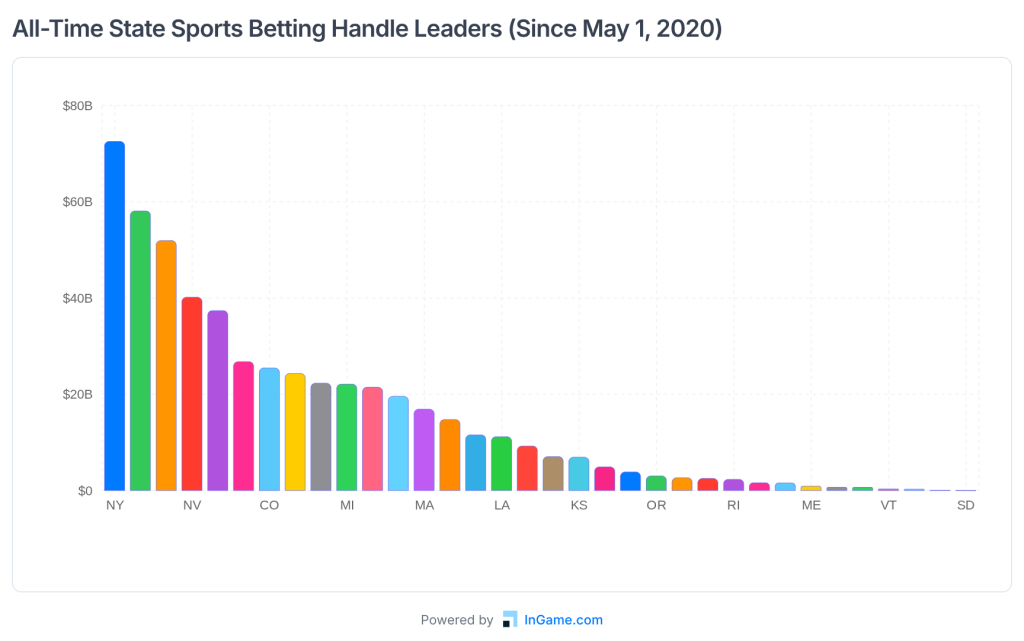
Fans become bettors (at least in Vegas)
While bettors are free to bet on any team no matter of either’s location, anecdotal and statistical evidence shows that hometown fans bet on hometown teams.
In 2018, Las Vegas sportsbooks were primed for huge losses if the expansion Golden Knights won the Stanley Cup in their inaugural season because of longshot preseason bets and the team’s deep playoff run. It didn’t quite happen. But in 2023, the Knights’ first championship cost Nevada outlets $6.6 million that decisive June.
Legalization update
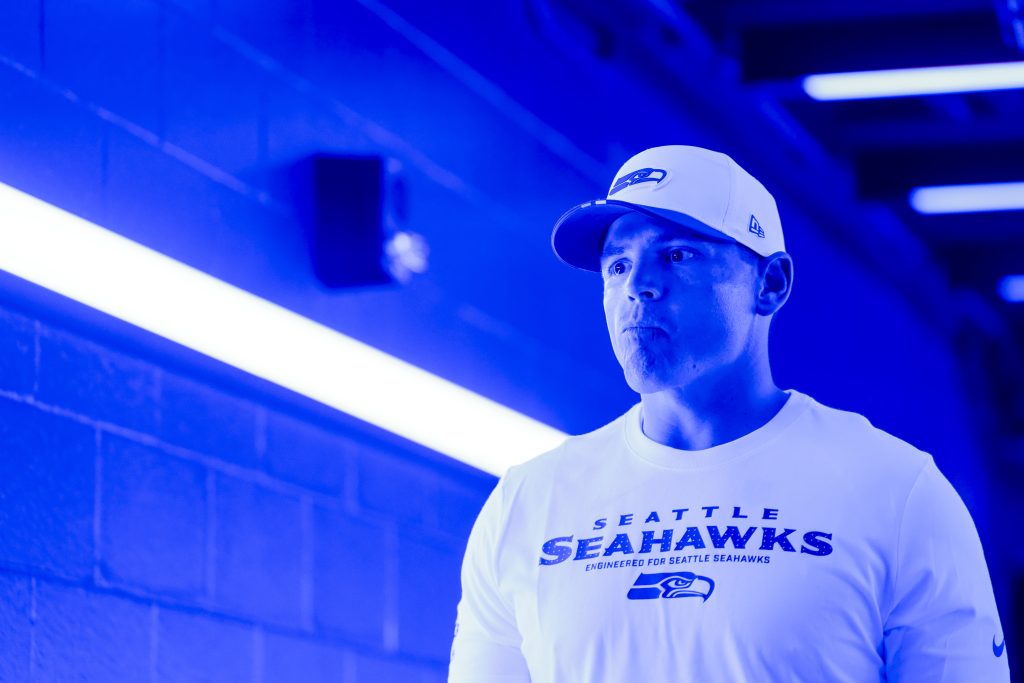
Is there light at the end of the locker room tunnel for these states?
For Missouri, yes. Sports betting is expected to launch there in a little over two months, which figures to reduce traffic heading west into Kansas on Chiefs game days and into tax coffers in Topeka. The Missouri Gaming Commission is in the process of setting up the market, which will include up to 21 licensed operators.
California: Gambling in the state is controlled by the Native American tribes and a deal with national operators to launch in the nation’s most populated state seems years off.
Georgia: A 2025 poll in Georgia showed that 63% of respondents supported legalization, as do professional sports teams that have for years lobbied the legislature. Nothing seems imminent, however.
Minnesota: In a land of a 10,000 conflicts, the stakeholders include nine Native tribes with gambling operations, two horse racing tracks, charitable gaming interests, and five professional sports teams jostling for their share. They’ve been jostling for years, with deals crumbling late in legislative sessions. A bill — SF 757 — from the 2025 session will carry over into 2026.
Texas: Virulently anti-gambling Lt. Gov. Dan Patrick, who is also president of the Republican-dominated Senate, announced his re-election bid, which darkens the prospect for legalization … in 16 months. The Texas Legislature only meets in odd-numbered years. According to in-state media, however, Texans have begun to mess with prediction markets.

